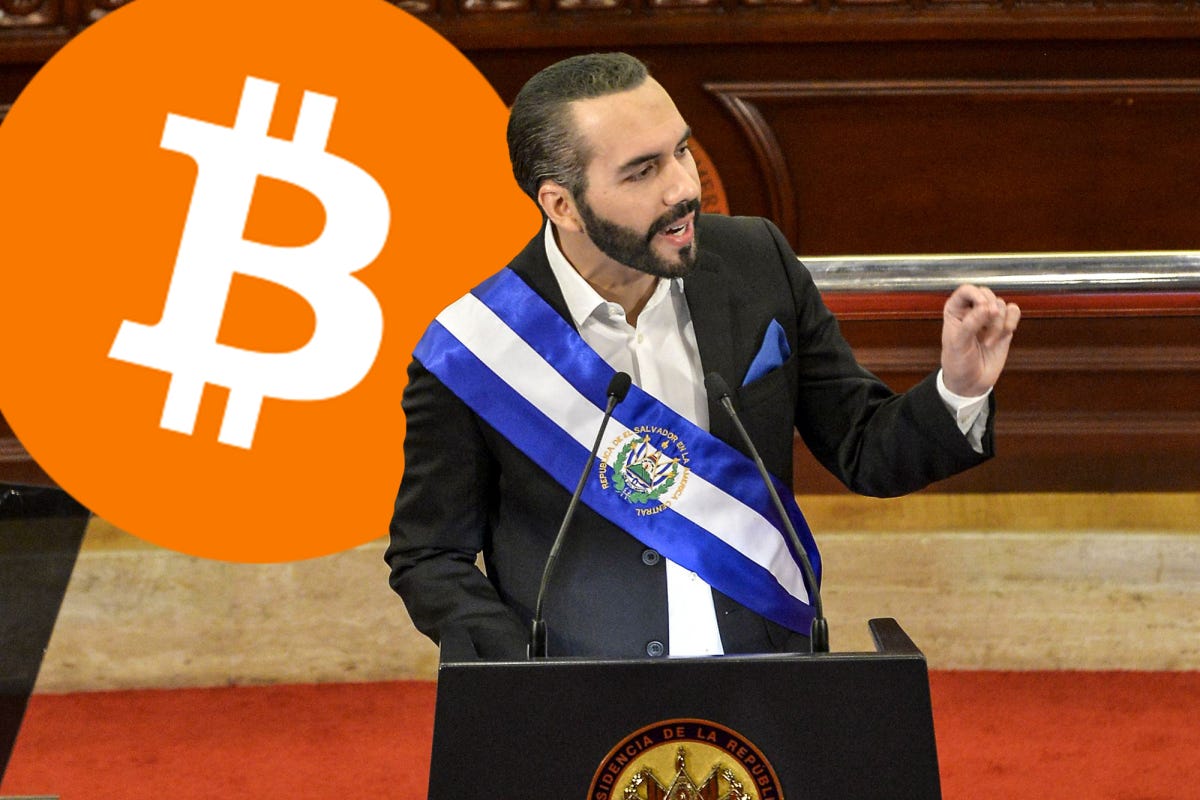El Salvador Develops Treasury Tracker for $350M Bitcoin Reserve
El Salvador partners with Mempool to launch Bitcoin tracking website after attempted security breach. With the nation’s stockpile growing every day, security & transparency are of paramount interest.
El Salvador, the first nation to officially adopt Bitcoin as a legal currency, has announced a new website to promote financial transparency and security by tracking the nation’s $350 million Bitcoin stockpile.
Ever since the Republic of El Salvador made history by officially adopting Bitcoin as a legal currency, the small Central American nation has had a revolutionary impact on the crypto economy worldwide. The government under President Nayib Bukele has repeatedly doubled down on its investments in the asset, beginning a policy of purchasing one bitcoin per day in November 2022 and reaping a substantial profit from it. Bukele publicly vowed to continue this purchasing regime “until Bitcoin becomes unaffordable with fiat currencies," and so far this strategy has seen gains of approximately $60 million, provided, of course, that he sells the bitcoin. Bukele has shown no intention of doing this, however, preferring to hold onto these reserves for further opportunities.
El Salvador is not revolutionary because it merely acquires and holds onto large amounts of Bitcoin. Instead, the nation is noteworthy for its repeated and broad-reaching endeavors to try and promote Bitcoin to its own citizens and on a national stage. The government has already initiated ambitious plans to develop a Bitcoin-native tech industry within the country and has hosted education campaigns to increase the average citizen’s Bitcoin literacy. These internal efforts have gone hand-in-hand with more global initiatives, from high-profile novelties like the use of Bitcoin to fund tourism infrastructure to more radical solutions. Upon the election of Javier Milei to the Argentinian Presidency in November 2023, Bukele sent a diplomatic mission to his new administration to help turn generally pro-Bitcoin comments into a firm and actionable plan to foster the world’s main decentralized currency. These sorts of efforts have officially made El Salvador’s Bitcoin adoption prominent on the world stage, and the community has been waiting to see what they’ll do next.
As it turns out, El Salvador’s most recent contribution to the world of Bitcoin has come from their attempts to actually custody all of these assets. Bukele shocked the world in mid-March 2024 when he publicly revealed the nation’s total Bitcoin reserve, dramatically exceeding expectations by posting evidence that the nation held 5,689 BTC. At the time of the announcement, outside observers were confident that the reserve was under $3,000, and by dollar value, an estimate of hundreds of millions was too light. This reveal was accompanied by the announcement that the country would be increasing security on this enormous reserve with a new cold storage solution. As President Bukele said on a Twitter post, “We've decided to transfer a big chunk of our Bitcoin to a cold wallet and store that cold wallet in a physical vault within our national territory." He also added jokingly that “you can call it our first Bitcoin piggy bank.”.
Problems would develop for this cold storage solution, however, when the reserve experienced a dire near-miss from an organized crew of hackers. On April 23, the anonymous cybercriminal group CiberIntelligenciaSV leaked snippets of the wallet’s source code online, marking the most successful attempt to violate the nation’s crypto security. The group identified the source code as “code that is inside the Bitcoin Chivo Wallet ATMs in El Salvador," so definitely a major security breach, but nevertheless not able to penetrate the cold storage. The hack came shortly after the group also leaked the hacked personal data of more than 5 million Salvadoran citizens, out of a total population of 6.3 million. This impressive show of force did not have a clearly defined goal, at least not one that has been publicly shared, but it still represented a shocking threat to the nation’s Bitcoin.
In response to this, El Salvador announced a new partnership with the Mempool Open Source Project on May 13th. The result is a new website, which provides a public tracker to measure the nation’s total Bitcoin holdings at one time. This move is intended to promote transparency and security for the nation’s Bitcoin, acting as a proof of reserves to validate the nation’s ability to act in space. A tracker like this is a show of confidence in the face of repeated hacking attempts, as a successful breach of reserves will immediately be shown to the entire world. Mempool’s tracker is set up to not create any sort of backdoor vulnerability into the vault, however, as it is verified from public data on Bitcoin’s blockchain. The vault shows over $350 million in Bitcoin at the time of writing, a figure that has only been climbing thanks to the daily purchases of one bitcoin.
El Salvador’s presence on the world stage has contributed to other nation’s Bitcoin policies already. Although Milei’s Argentina has been somewhat slow to fulfill the more bullish expectations placed on his presidency, the country has still been making a wide variety of small Bitcoin-friendly steps since his election. For example, on May 8th, a state-owned gas facility began Bitcoin mining using the flared-gas method, using 1200 mining rigs to profitably use this waste product. Flared gas is a byproduct of natural gas distillation in oil fields, and it represents the fractions of usable gas that are lost as waste.
Flared-gas mining has been popular in many countries as an environmentally conscious use of this waste; it may not be as environmentally sustainable as using purely renewable resources for mining, but it is certainly greener to harvest and use this gas on-site rather than vent it directly into the atmosphere. We will have to see if Argentina’s state-owned energy producers replicate this strategy on a mass scale in the near future, but this step is certainly one in the right direction. El Salvador has made real efforts to be just one Bitcoin-friendly nation in a sea of like-minded governments, and it has made at least some progress in Argentina.
El Salvador’s new tracking software is just one building block in a grand project of Bitcoin adoption and popularization pioneered by the government. Under Bukele, the nation has seen its investments in the decentralized currency balloon well over their initial value, but he has shown absolutely no interest in selling. It seems that these pro-Bitcoin initiatives are spurred more directly by a goal of increasing Bitcoin’s standing in the world and growing the number of Bitcoiners and their business ventures. It’s unsure what the final goal will be for Bukele as he continues his second term as president, but it’s clear that we can expect great things from this bold and ambitious strategy. With an innovative spirit like his, it’s clear that Bitcoin’s star will continue rising.
If you liked this content please give a like and share! Comment below with your reactions to this post and any recommendations for future topics.
Thank you for reading Bitcoin Magazine Pro™, we sincerely appreciate your support!










